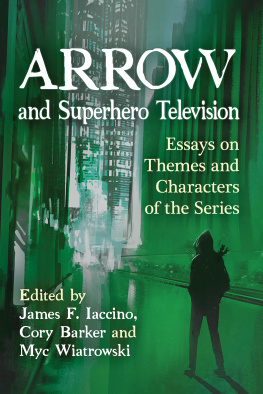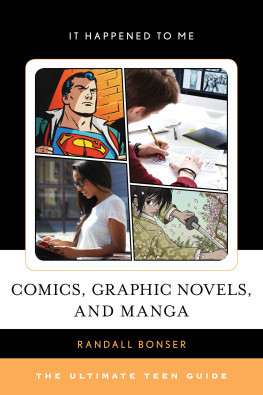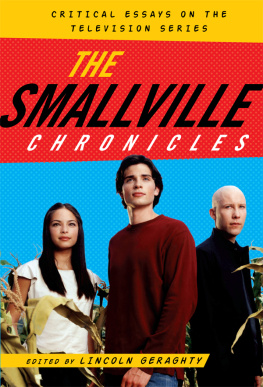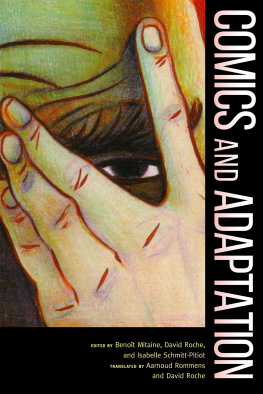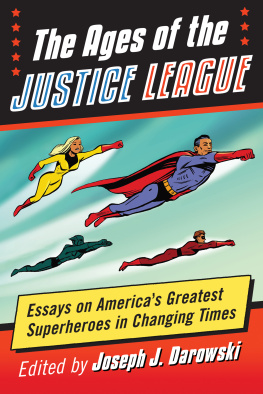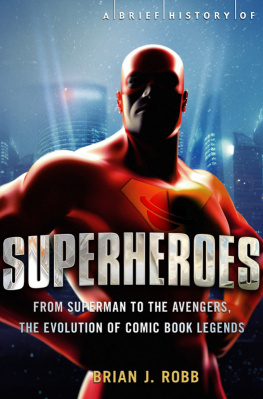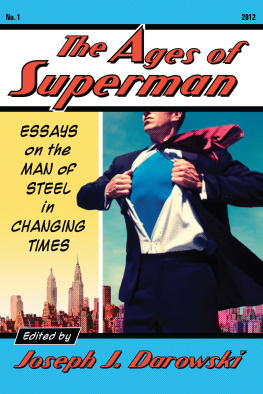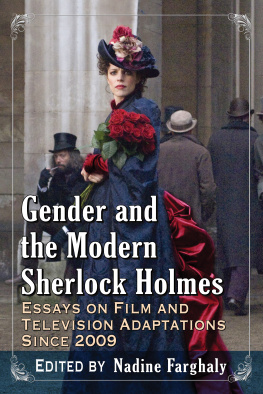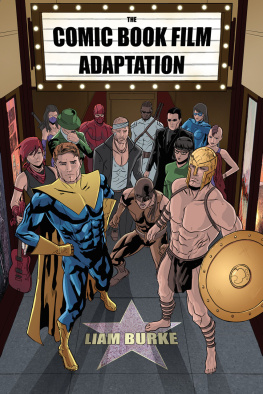
Arrow and Superhero Television
Essays on Themes and Characters of the Series
Edited by JAMES F. IACCINO, CORY BARKER and MYC WIATROWSKI

McFarland & Company, Inc., Publishers
Jefferson, North Carolina
LIBRARY OF CONGRESS CATALOGUING DATA ARE AVAILABLE
BRITISH LIBRARY CATALOGUING DATA ARE AVAILABLE
e-ISBN: 978-1-4766-2965-0
2017 James F. Iaccino, Cory Barker and Myc Wiatrowski. All rights reserved
No part of this book may be reproduced or transmitted in any form or by any means, electronic or mechanical, including photocopying or recording, or by any information storage and retrieval system, without permission in writing from the publisher.
Front cover image of street at night 2017 Grandfailure/iStock
McFarland & Company, Inc., Publishers
Box 611, Jefferson, North Carolina 28640
www.mcfarlandpub.com
Acknowledgments
The editors would like to thank all 17 contributors for their tireless work and seemingly endless patience as this text slowly but surely developed into its final form. All of the authors truly love Arrow and have offered sound reasons and arguments in their essays as to why viewers should continue to watch the show (if they have not done so already).
James would like to thank his coeditors Cory and Myc for guiding him along in the process of editing the text, as this is the first time he has assumed this role. His dream of actually doing a work like the earlier Mapping Smallville text was what started this project, and that dream became a very pleasant and satisfying reality. James would also like to thank his fiance, LaVerne, for being so loving and supportive throughout this entire venture. He would also like to acknowledge the following people who provided their views on Arrow and this project from its inception to its completion: daughters Kaitlin and Rebecca, coworker Jenna Dondero, and graduate student Ariel Breaux.
Cory would like to thank his coeditors James and Myc for their meticulous work and commitment to bringing a great idea to life. Cory would also like to give a shout out to his friends in the critical and scholarly community for always lending their time and ears to workshop ideas big and small, and his family for their never-ending support.
Myc would like to thank his coeditors, Cory and James, whose enthusiasm and dedication brought this collection together. Without their hard work, this book would have been an impossibility. He would also like to thank all of the contributors to this collection. This group has provided us fantastic texts to investigate the aspects of everyday life that are too often glossed over. Finally, Myc owes his greatest debt to his family, Laura and Lucas, whose endless patience and understanding makes all things possible.
Introduction
JAMES F. IACCINO, CORY BARKER and MYC WIATROWSKI
Superhero and comic book adaptations have been big business for film studios for nearly four decades now, dating back to Richard Donners Superman in 1978. As with most genres, superhero films have arrived in waves since 1978: Batman dominated most of the 1990s like Superman did in the 1980s; Marvel properties like the X-Men and Spider-Man revitalized audience interest in the early 2000s; competing Batman and Iron Man franchises catalyzed a brand new DC and Marvel arms race in 2008; and today the film industry views every moderately or once-popular character as pieces to position within enormous, multi-film cinematic universes. As of the time of this writing, five of the top eleven highest-grossing films of 2016 are comic book adaptations (Captain America: Civil War, Deadpool, Batman v Superman: Dawn of Justice, Suicide Squad, and X-Men Apocalypse), with another (Doctor Strange) sure to join them. Both Marvel and DC have at least a half-dozen more films, including new solo projects for Wonder Woman, Captain Marvel, Aquaman, the Flash, and Black Panther, in development for release before 2020.
The superhero waves have been far choppier on television. At least one prominent superhero project has aired on television in every decade since the 1950s: The Adventures of Superman (19521958), Batman (19661968), Wonder Woman (19751979), The Incredible Hulk (19781982), Lois & Clark: The New Adventures of Superman (19931997), and Smallville (20012011). Yet the various successes of these series only occasionally inspired additional projects in their respective time periods, positioning each project as an exception to the prevailing assumption that superheroes do not translate effectively to live-action television. Whether due to budgetary and ownership restrictions or the large shadow cast by the winking pop art aesthetic of the 1960s Batman series, the television industry (and, by proxy, viewers) did not take superheroes seriously well into the 21st century. Even Smallville, the longest running live-action superhero series by a comfortable margin, was disregarded by popular critics and the industry press after its first few seasons on the air; its 2011 series finale was watched live by three million viewersgood for a fourth place finish that night.
Eighteen months after the end of Smallville, the CW premiered Arrow (2012), a series based on fellow DC character Oliver Queen and his alter ego Green Arrow. Originally developed in 1941 for DCs More Fun Comics by Mortimer Weisinger and George Papp, Green Arrow enjoyed only modest popularity as a Batman clone (wealthy, non-superpowered vigilante) until a more politically pointed partnership with Green Lantern took off in the 1970s. The Robin Hoodesque Emerald Archer has been a regular member of DCs various Justice League factions, both in the comics and in animated television series, and played a significant role in the final seasons of Smallville (where he was portrayed by Justin Hartley). Green Arrows human abilities and middling status among more popular DC heroes made him the perfect character for producers and comic fans Greg Berlanti, Marc Guggenheim, and Andrew Kreisberg to bring to television.
An amalgamation of recent Green Arrow comic storylines, the Christopher Nolan Batman films (2005, 2008, and 2012), Smallville, and even Lost (20042010), Arrow debuted to the CWs highest ratings in three years. The series was an immediate hit with critics as well, generating positive reviews throughout its first few seasons and high praise for its combination of Nolan-esque gritty realism, heightened comic book sensibilities, and artfully crafted fight choreography and action sequences. More impressively, the emergent adaptability of Arrows universe inspired producer Greg Berlanti, DC, and Warner Bros. Television to develop new series within it, bringing audiences The Flash (2014), Supergirl (2015), and DCs Legends of Tomorrow (2016) in rapid succession.
Without Arrow, of course none of those other series exist, but likely neither do DC/WBTVs non-affiliated series Gotham (2014) and Lucifer (2016). Maybe Marvel and Disney would have always brought Agents of S.H.I.E.L.D. (2013) to ABC no matter what as a way to expand the cultural footprint of the Marvel Cinematic Universe, but Arrows success made that decision easier. Without Arrow
Next page
